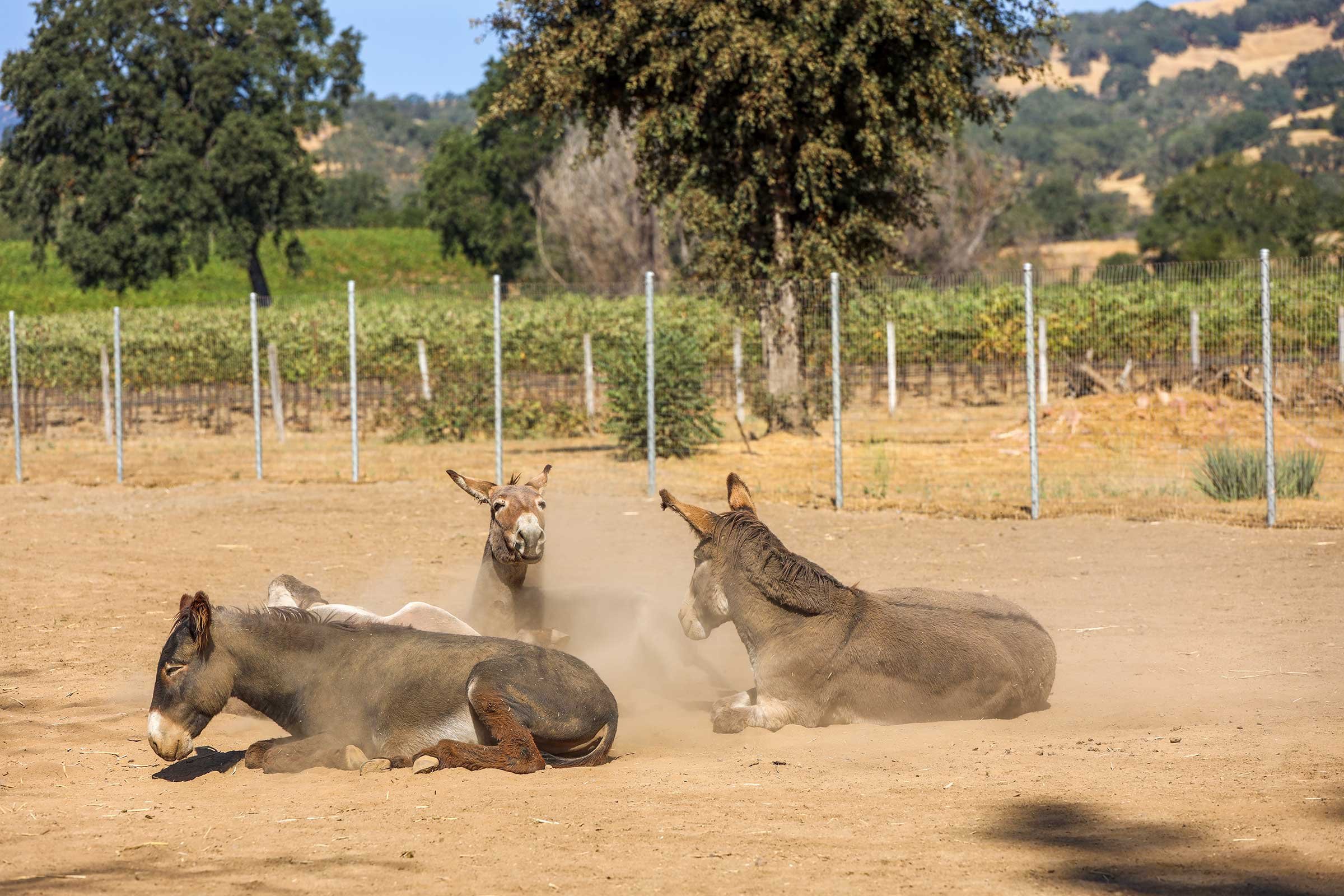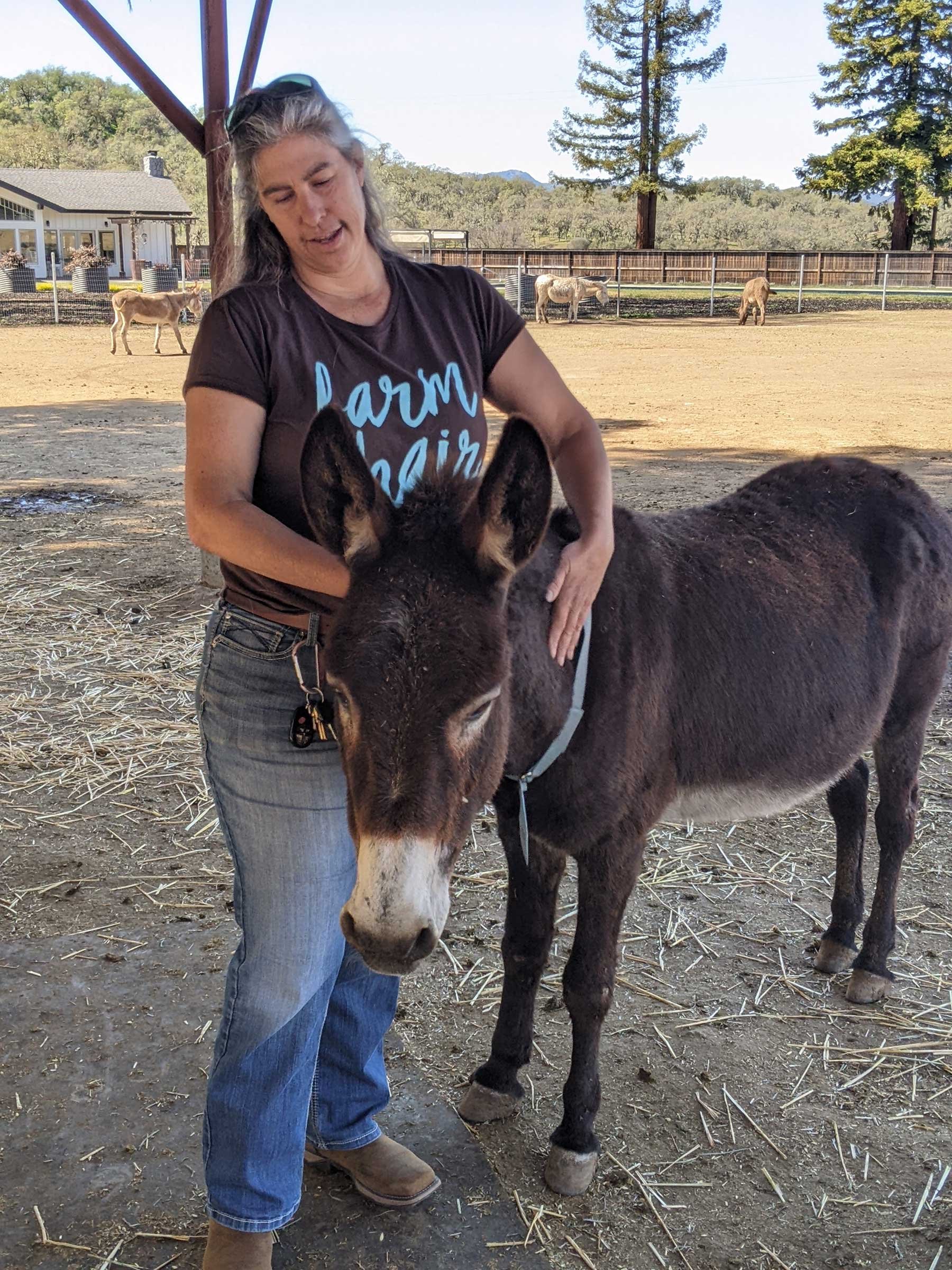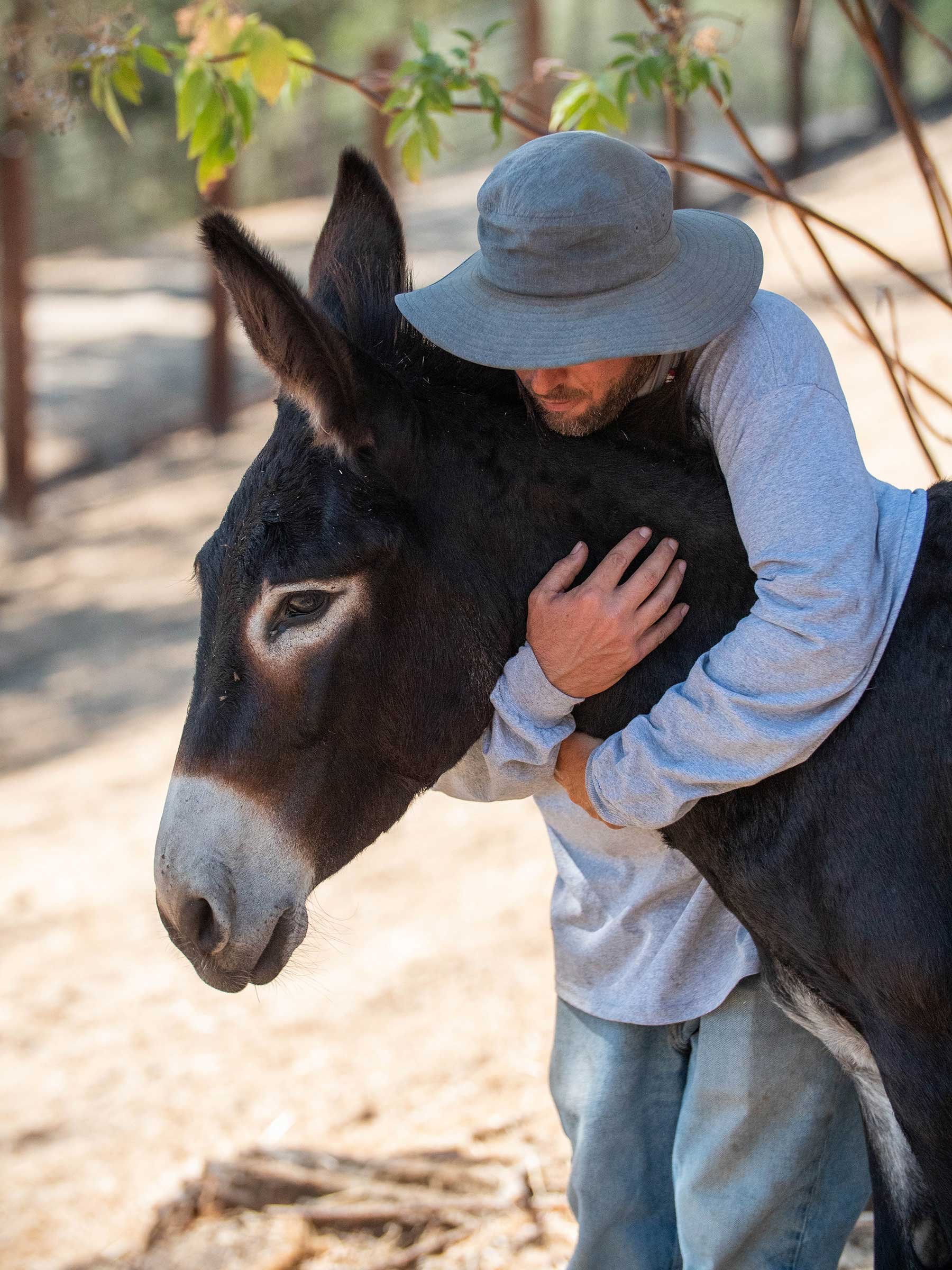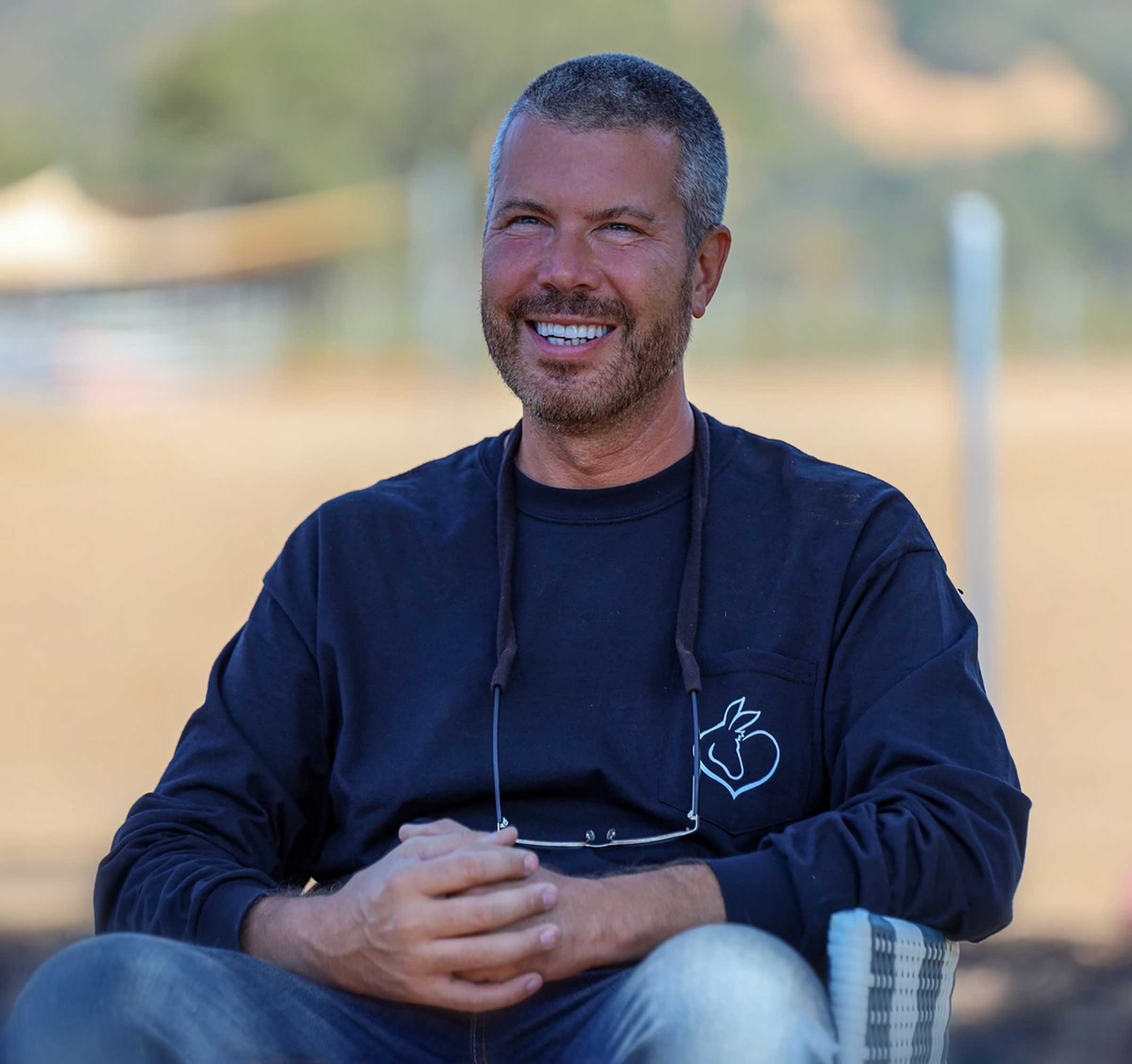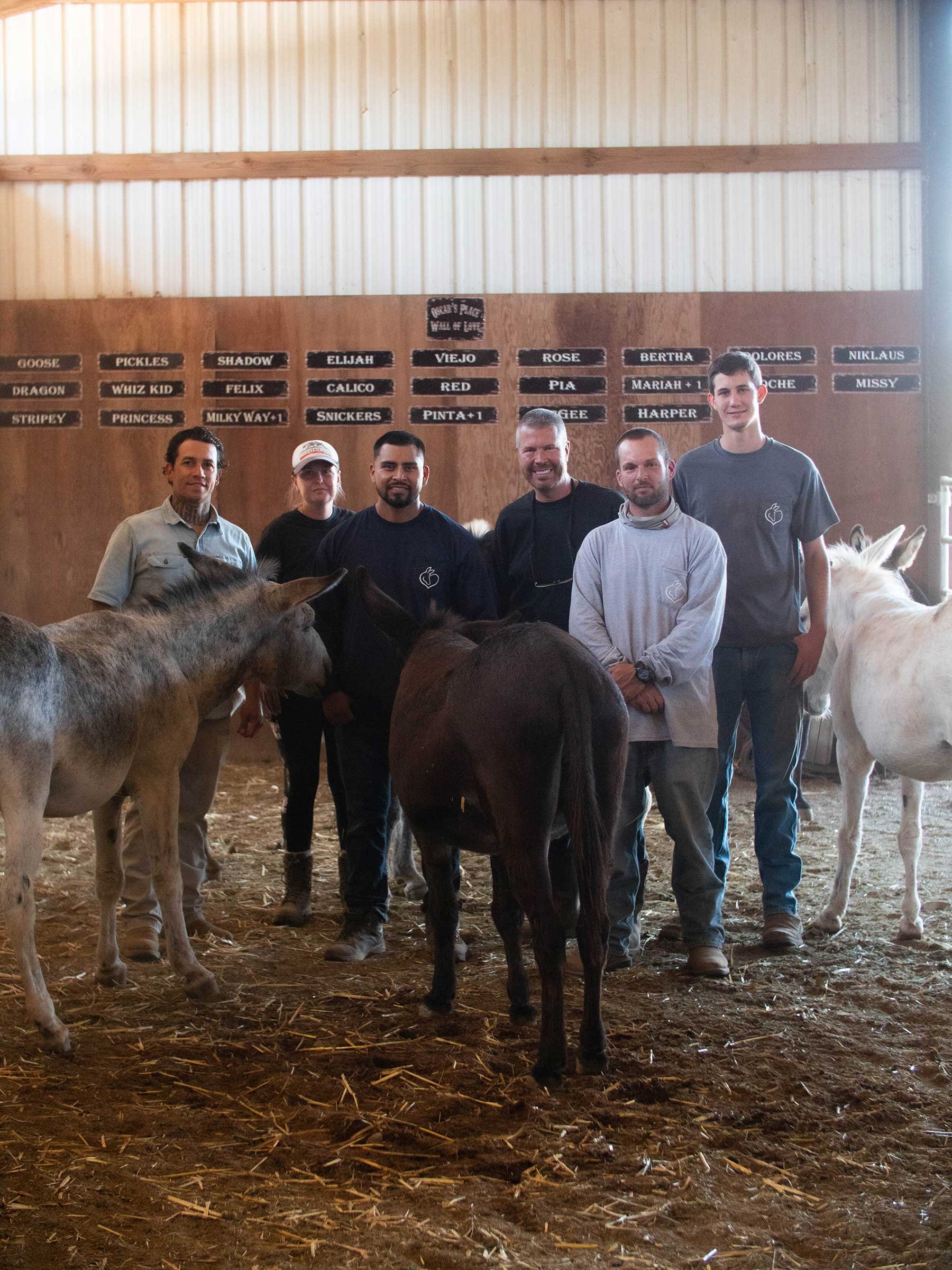Who’s Rescuing Whom?
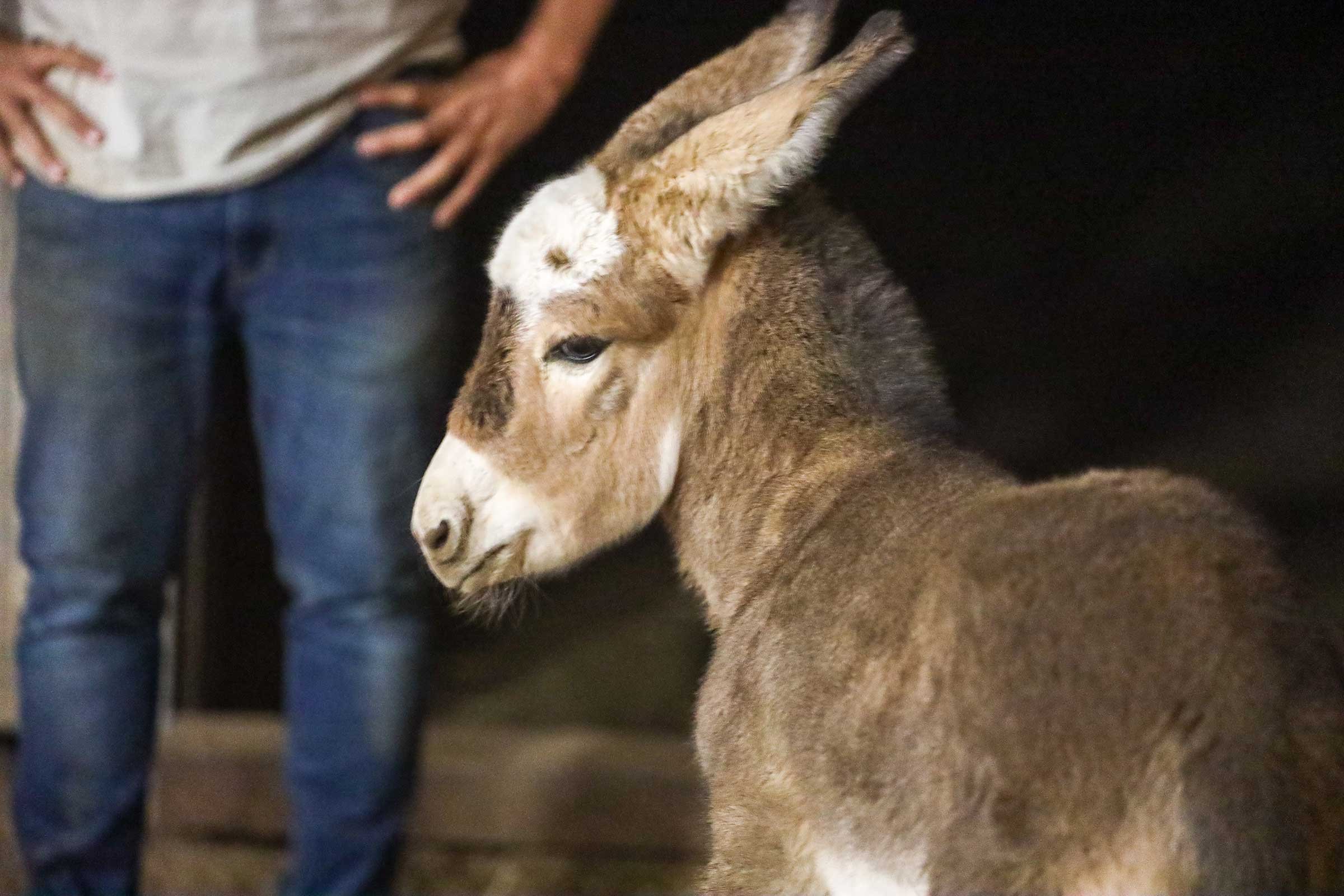
The Oscar’s Place Donkey Sanctuary is a Fresh Start for All Involved
by Lisa Ludwigsen
Anyone familiar with donkeys will tell you that, despite their obviously similar appearance to horses, a donkey’s demeanor is closer to that of a dog. Think a big, friendly, 1,000-pound dog.
Visiting the donkeys at Oscar’s Place Donkey Sanctuary in Hopland reinforces that comparison. Just like dogs, when a guest arrives, some of the donkeys make a beeline to see who the visitor is. Others hang back for a while, but they are all curious, aware, and interested. And they are utterly charming as they seek out a pat, a scratch behind the ears, or even a hug.
When a 1,000-pound animal snuggles up for a gentle hug, the effect is transformative. The day’s stress and worry fade away. Time slows down. The experience is delightful and genuinely heartwarming. Donkeys are the ultimate therapy animals.
Except for some telltale hide marks from their time at a kill lot, a visitor would never guess that these gentle animals have been rescued from dire circumstances. Most were purchased at an auction, on their way to slaughter. They arrive at Oscar’s Place, after two weeks of quarantine and medical checkups, in various states of trauma. Once they are rehabilitated and healthy, they are available for adoption to loving homes.
The man behind this ambitious, heartfelt, 15-month-old project is Ron King, a former media executive with 20 years’ experience in the media and fashion worlds. Like many people with second or third career acts, Ron’s path to his current work was circuitous, a matter of timing and opportunity that led him to a place he least expected.
In 2019, Ron found himself at a crossroads. Between jobs and newly single, Ron was offered a job overseeing the sale of a sprawling, elegant 75-acre estate owned by his friend, Phil Selway. While temporarily living on the property, Ron happened upon a TikTok video of donkeys at a kill lot in Texas. The video led him to an article in The Guardian detailing how the use of donkey hides in traditional Chinese medicine is decimating the global donkey population. The medicine, called ejaoi, is used to treat anemia, insomnia, bleeding, and dizziness. It is so popular that five million donkey hides a year are needed to keep up with demand. At that rate, donkeys would be wiped out within five years. Taking a big leap into the unknown, Ron proposed to his friend, Phil, that they keep the Hopland property and turn it into a donkey sanctuary.
Fifteen months later, Ron oversees not only the growing donkey population at Oscar’s Place—23 foals will be born this spring, adding to the 95 adult donkeys—but also a burgeoning media conglomerate. A reality TV pilot has been completed, multiple national media outlets have covered the story, and Ron co-hosts a podcast. This important exposure helps illuminate the plight of donkeys, as well as raise awareness of the work of Oscar’s Place. As one might imagine, operating expenses are significant for a growing animal sanctuary, and Ron is always seeking donations and sponsorships.
Though the sanctuary isn’t open to the public, volunteers are a crucial component of the operation. “At the beginning, we asked volunteers to help with ranch chores,” shared Ron. “Now we ask them to spend their time just loving on the donkeys.” That socialization is an important aspect of their rehabilitation. When they arrive, many of the donkeys need to relearn trust in humans. Tammy Bishop travels each week from Whitter Springs in Lake County to spend time brushing and socializing with the animals. “I knew I wanted to help out at a donkey rescue and just love spending time with them,” she said with a smile, while stroking a donkey.
The goal of Oscar’s Place is to rehome their rescued donkeys (to date, 31 have found homes), but Ron strictly adheres to his three-part agreement with the adopters: the donkeys will be safe and happy for the rest of their lives; they will not be working animals; and bonded pairs will not be separated. They are allowed to be used as livestock protection, a traditional use for working donkeys, but only as a secondary task. They must first be a pet. To that end, the adoption process is comprehensive and doesn’t happen quickly. Many adoption requests are denied. Other donkey rescue operations are less stringent in their requirements, but Ron stands firm in his commitment to the animals under his care.
At its core, Ron’s personal mission is to keep moving toward connection of all kinds while making the world a better place. ”After a very full life, I am now able to differentiate between things I enjoy and things that bring me joy,” he shared. “I enjoyed beautiful clothing, fancy cars, and international travel, but taking care of donkeys actually brings me a lot of joy.” As he moves through the corral, sharing loving affection for each donkey and calling them by name, it’s clear that Ron has found his joy. And it appears the donkeys have, too.
If you would like to support Oscar’s Place, become a volunteer, or learn more about donkey rescue, visit OscarsPlace.org.
Lisa Ludwigsen is a writer and marketer working with food, farms, and family small businesses throughout Northern California. She has worked in organic agriculture, natural foods, and environmental education for over 20 years.

